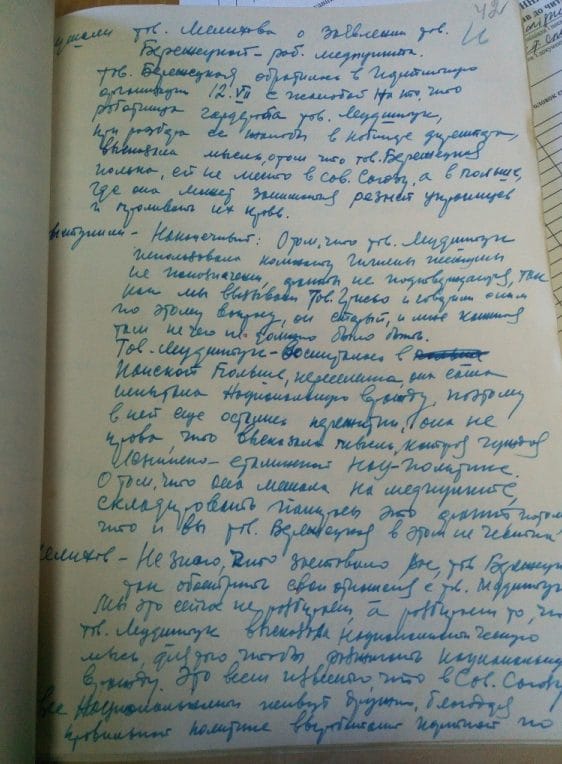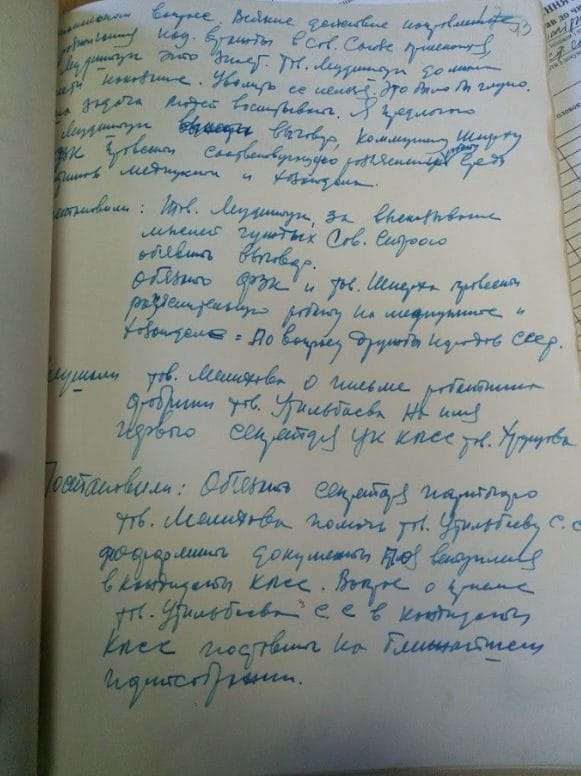State Archives of Lviv Oblast (DALO), P-1350: Resettlement Department of the Lviv Oblast Executive Committee, inventory 2, case 118, volume VII, sheet 4–5.(Materials on complaints from resettlers from Poland (including complaints and correspondence with the Supreme Soviet of the USSR and with oblast and district executive committees, as well as other party and Soviet bodies, regarding the resolution of complaints, 1954)).
[Resolution: “We must help!” Signature and date illegible on the margins of the document.]
Kyiv, 14 Shevchenko Boulevard
Resettlement Committee
I, Myroslava Pavlivna Lozynska, born in 1924, have a secondary education. I am a resettler from Poland (1946) and Ukrainian by nationality.
From 1950 until July 22, 1953, I worked in Lviv as a second-class saleswoman in Store No. 1 of “Yuvelirtorh,” earning a salary of 399 rubles.
Throughout my employment, I never received a single complaint from customers or supervisors.
At the end of 1952, K. H. Yanitska, a Polish nationalist and the wife of a Polish army officer who has lived in England since 1939, was appointed head of my department.
From her very first day, she treated me with open hostility and harassed me relentlessly because I am Ukrainian and a resettler. Her behavior made it impossible for me to continue working in that store. On several occasions, I appealed to the manager of the Interoblast Office of “Yuvelirtorh,” Comrade I. I. Matov, asking to be transferred to another store, but he deliberately ignored my requests, saying, “Wait, disregard her—Yanitska is crazy,” and so on. In the end, I was forced to submit a resignation request on July 22, 1953.
I am a widow—my husband, an accountant at a savings bank and an athlete, died in an accident in 1944 in the city of Peremyshl.
I have two children, born in 1943 and 1944, who are entirely dependent on me.
Since my dismissal, as I have no earnings, I have been searching for work, but in vain. Everywhere I go, people express sympathy, yet the answer is always the same: “We have nothing for you—come back tomorrow” and so on. Comrade Dobrzhynskyi, head of the Oblast Trade Department, is so busy that he cannot spare a single minute for local residents or displaced people.
For this reason, I have appealed to the party organizations in Lviv, asking for assistance in finding employment.
Comrade Kikh, a deputy and member of the Lviv and Kyiv oblast committees, took up my case right away. At her request, both the Lviv Oblast Trade Department (headed by Dobrzhynskyi) and the Interoblast Office of “Yuvelirtorh” (headed by Comrade Matov) promised to employ me immediately.
However, five months have now passed, and I have still not been hired. My children and I have nothing to live on.
Based on the above, I respectfully request that an order be issued to employ me in Lviv in a position corresponding to my qualifications, so that I may support my children and live a peaceful life, something guaranteed to every citizen by Stalin’s just Constitution.
I attach my character reference to this application.
/M. P. Lozynska/
Address: Lviv, Kolhospna (Hallia) Street, No. 7, Apt. 2.
December 18, 1953




